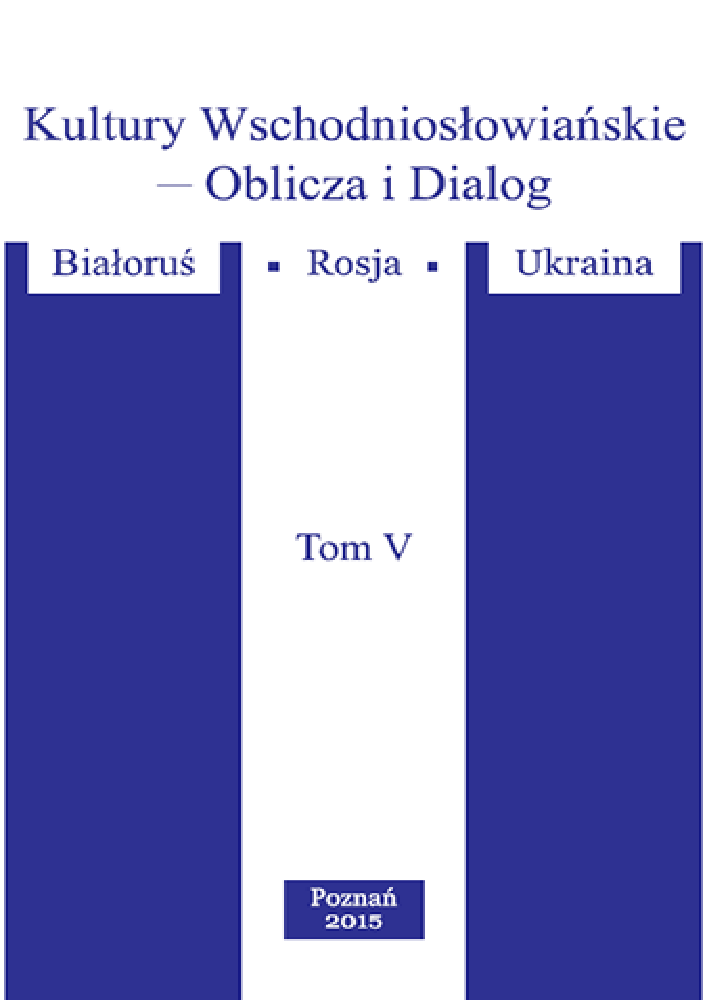Abstrakt
The intellectual prose of Vladimir Nabokov is not easy to be filmed. Thus, filmmakers have made a lot of changes in the original text. The goal of The Luzhin Defence creators’ was to show a completely new interpretation of Nabokov’s novel and present it to the public. This is why they simplified the plot, added some dynamism, made it more epic and attractive (love triangle, Luzhin’s mother’ suicide, erotic scenes, conspiracy, kidnapping, failed wedding). Luzhin’s childhood has been presented as a series of flashbacks. The hierarchy of characters has been changed: two equivalent characters are in the center (Luzhin and Natalia). All other characters have been given their first names and their biography. The film is spiced with feminism: the female character is stronger than in the novel and the story of a chess player (Luzhin) is presented from the feminist director’s point of view. Love story is placed in the center of the plot and it covers the topic of the game of chess. The motif of chess is connected with an extra independent character providing comments about chess to a viewer. Nabokov’s idea about the transcendental nature of arts, madness as the price for being a genius, is not presented in the film. The conflict in the film is not about metaphysics, but about intrigues and envy. Additionally, the plot has been complemented with an epilog to Nabokov’s story. After Luzhin’s suicide Natalia finishes the championship chess match by following his notes about the game and takes a revenge.
Bibliografia
Aleksandrov Vladimir. Nabokov i potustoronnost: metafizika, etika, estetika. Per. N. Anastasjeva. Sankt-Peterburg: Izdatelʹstvo "Aleteja", 1999.
Cyrkun Nina. Endshpil. Iskusstvo kino. № 8, 2001: 36-38.
Ebert Roger. Reviews The Luzhin Defence. Web. 01.02.2019. <https://www.rogerebert.com/reviews/the-luzhin-defence-2001>.
Izakar Anna. Nabokov. Shachmaty. Kino. Web. 01.02.2019. <https://seance.ru/blog/nabokov2/>.
Nabokov Vladimir. Zashchita Luzhina. Moskva: Izdatelʹstvo "Pravda", 1990.
Nechoroshev Leonid. Dramaturgia filma. Moskva: Izdatelʹstvo VGIK, 2009.
Mazierska Ewa. Nabokov's Cinematic Afterlife. Jefferson, NC and London: McFarland, 2011.
Scott A. Film review: A genius pulled apart by both love and chess. Web. 01.02.2019. <https://www.nytimes.com/2001/04/20/movies/film-review-a-genius-pulled-apart-by-both-love-and-chess.html>.
Shaternikova Marianna. Ekranizacyja zagadochnogo proizvedenija V.Nabokova. Web. 01.02.2019. <https://www.chayka.org/authors/marianna-shaternikova>.
Khodasevich Vladislav. „Recenzija: Zashchita Luzhina”. Klassik bez retushi. Literaturnyj mir o tvorchestve Nabokova. Moskva: Izdatelʹstvo NLO, 2000: 64-67.
